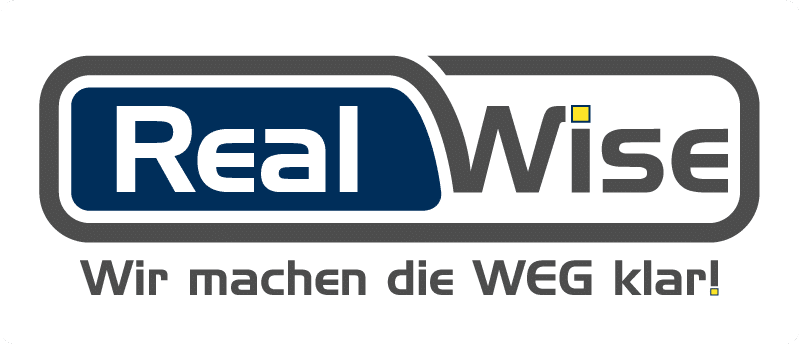1. Vereinbaren Sie einen Termin
Auch wenn Ihnen grundsätzlich ein Einsichtsrecht zusteht, bedeutet das nicht, dass es immer am besten ist, einfach so bei Ihrem WEG-Verwalter vorbeizuschauen. Einerseits können Sie nicht damit rechnen, dass er sofort alle Unterlagen parat hat. Andererseits kann der Verwalter bei einem spontanen Besuch auf einer vorherigen Terminvereinbarung bestehen. Außerdem wissen Sie nicht, ob der Verwalter an diesem Tag überhaupt sein Büro geöffnet hat. Er kann anderweitige Termine haben oder im Urlaub sein.
Gelegentlich haben Hausverwalter kein großes Interesse daran, für die Einsicht Termine zu vergeben. Sie sollten aus diesem Grund mindestens drei Vorschläge machen, am besten verteilt über ein oder zwei Wochen. Gleichzeitig sollten Sie anbieten, dass der Verwalter Ihnen notfalls zumindest einen Ersatztermin vorschlägt.
2. Ausreichend Zeit einplanen
Bei Ihrem Besuch beim Verwalter sollten Sie die Zeit nicht unterschätzen, die Sie zur Sichtung der Belege benötigen. Denn Sie müssen zunächst mal einen Überblick bekommen, wie seine Ablage strukturiert ist. Erst dann können Sie Ihre Durchsicht planvoll durchführen. Erfahrungsgemäß sollten Sie deshalb mindestens drei bis vier Stunden für den Termin einplanen.

3. Bereiten Sie sich vor
Einfach die Belege einzusehen, wird Sie nicht zu Ihrem eigentlichen Ziel führen. Wichtig ist stattdessen, den Termin beim Verwalter mit einer konkreten Fragestellung zu verbinden. Z.B. kann das die Frage sein, ob für bestimmte Zahlungen auch die entsprechenden Belege zuzuordnen sind. Am besten ist, wenn Sie bereits vorher schon relevante Unterlagen zusammengetragen und gesichtet haben. Dann können Sie noch deutlich gezielter vorgehen.
4. Störungen durch den Verwalter unterbinden
Einige Verwalter haben wenig Zeit für die Einsichtnahme durch die Eigentümer. Denn damit haben sie einen erheblichen Aufwand. Weiterhin kann der Verwalter nicht ausschließen, dass er an der einen oder anderen Stelle durchaus einen Fehler gemacht hat, der nun entdeckt werden könnte. Deshalb ist es wichtig, Ruhe zu bewahren und darauf zu achten, dass die Atmosphäre sachlich bleibt. Am besten ist es, Sie bitten den Verwalter gleich zu Beginn, dass er Ihnen einen separaten Raum zuweist, Dort können Sie alles in Ruhe sichten und stören ihn nicht bei seiner Arbeit.
5. Versuchen Sie, so viel wie möglich zu bekommen
Zwar sollten Sie die Einsicht mit einer konkreten Frage planen. Dagegen sollen Sie aber einen Aspekt nicht aus den Augen verlieren: Es ist ärgerlich, wenn Sie zu Hause feststellen, dass Sie den einen oder anderen Beleg nicht gesichtet haben. Deshalb empfiehlt es sich – auch wenn Sie eine konkrete Frage haben –, so viele Informationen wie möglich zu sammeln. Denn oft genug stoßen Sie später noch auf einen anderen Aspekt, zu dem Sie allerdings nicht die Unterlagen gesichtet hatten. Wie gut, wenn Sie auch dem Verwalter einen weiteren Termin ersparen können.

6. Technische Lösungen suchen
Wenn Sie alles einsehen wollen, dann stehen Sie vor einem Problem: Sie können sich weder alle Informationen merken, noch können Sie innerhalb angemessener Zeit eigene Notizen fertigen. Deshalb empfiehlt es sich, eine technische Lösung zu verwenden. Das kann z.B. die Kamera des Handys sein, das noch genügend Speicherplatz hat. Oder Sie kaufen sich einen tragbaren Handscanner, mit dem Sie schnell ein paar Seiten einscannen können. Denn auf einen Aspekt dürfen Sie sich nicht verlassen: Der Verwalter wird Ihnen keine Kopien anfertigen. Sie haben einen Anspruch auf die Einsicht in die Belege. Das ist ständige Rechtsprechung. Das Einsichtsrecht steht Ihnen auch dann zu, wenn es einen Verwaltungsbeirat gibt. Der Datenschutz spielt hier eine untergeordnete Rolle.
7. Nehmen Sie einen Zeugen mit
„Geteiltes Leid ist halbes Leid“. So lässt sich eine Einsichtnahme beim Verwalter mit einem Zeugen verstehen. Denn gerade, wenn es etwas ruppiger zugehen sollte, ist es immer von Vorteil, nicht allein zu sein. Außerdem können Sie sich z.B. beraten, sollten irgendwelche unvorhergesehenen Aspekte auftreten. Am besten ist der Zeuge eine neutrale Person, die nicht der Wohnungseigentümergemeinschaft angehört, z.B. ein Steuerberater oder Rechtsanwalt. Und noch besser ist es, wenn der Zeuge zugleich über die entsprechende Sachkunde verfügt, also weiß, wo Sie am besten nachschauen, um Ihre Frage beantworten zu können.

8. Effizient arbeiten und den Verwalter entlasten
Bieten Sie dem Verwalter bereits bei der Terminvereinbarung an, dass alternativ zu einem Termin auch die Möglichkeit besteht, dass er Ihnen die Unterlagen eingescannt mailt. Zunehmend mehr Verwalter arbeiten mit einem Dokumenten-Management-System und haben die Unterlagen bereits für Ihre eigenen Zwecke eingescannt.
Für diesen Fall benötigen Sie mindestens eingescannt
- die Original-Kontoauszüge der Bank, die das Konto der WEG führt (also keine Auszüge aus dem Verwaltungs-Software-System des WEG-Verwalters) und
- die Eingangsrechnungen (also alle Belege zur Prüfung von Auszahlungen vom Bankkonto der WEG).
In vielen Fällen sind Sie nicht der einzige Eigentümer, der sich für diese Unterlagen interessiert. Nichts ist ärgerlicher für den Verwalter, als wenn jeder Eigentümer einzeln und unabgestimmt einen Termin bei dem Verwalter wahrnimmt. Hier können Sie Ihrem Verwalter sehr entgegenkommen und ihn entlasten, sofern Sie sich im Eigentümerkreis untereinander abstimmen. Vielleicht ist ein persönlicher Termin zur Einsichtnahme nicht erforderlich, wenn er Ihnen die eingescannten Unterlagen zuschicken kann.
1. Vereinbaren Sie einen Termin
Auch wenn Ihnen grundsätzlich ein Einsichtsrecht zusteht, bedeutet das nicht, dass es immer am besten ist, einfach so bei Ihrem WEG-Verwalter vorbeizuschauen. Einerseits können Sie nicht damit rechnen, dass er sofort alle Unterlagen parat hat. Andererseits kann der Verwalter bei einem spontanen Besuch auf einer vorherigen Terminvereinbarung bestehen. Außerdem wissen Sie nicht, ob der Verwalter an diesem Tag überhaupt sein Büro geöffnet hat. Er kann anderweitige Termine haben oder im Urlaub sein.
Gelegentlich haben Hausverwalter kein großes Interesse daran, für die Einsicht Termine zu vergeben. Sie sollten aus diesem Grund mindestens drei Vorschläge machen, am besten verteilt über ein oder zwei Wochen. Gleichzeitig sollten Sie anbieten, dass der Verwalter Ihnen notfalls zumindest einen Ersatztermin vorschlägt.
2. Ausreichend Zeit einplanen
Bei Ihrem Besuch beim Verwalter sollten Sie die Zeit nicht unterschätzen, die Sie zur Sichtung der Belege benötigen. Denn Sie müssen zunächst mal einen Überblick bekommen, wie seine Ablage strukturiert ist. Erst dann können Sie Ihre Durchsicht planvoll durchführen. Erfahrungsgemäß sollten Sie deshalb mindestens drei bis vier Stunden für den Termin einplanen.

3. Bereiten Sie sich vor
Einfach die Belege einzusehen, wird Sie nicht zu Ihrem eigentlichen Ziel führen. Wichtig ist stattdessen, den Termin beim Verwalter mit einer konkreten Fragestellung zu verbinden. Z.B. kann das die Frage sein, ob für bestimmte Zahlungen auch die entsprechenden Belege zuzuordnen sind. Am besten ist, wenn Sie bereits vorher schon relevante Unterlagen zusammengetragen und gesichtet haben. Dann können Sie noch deutlich gezielter vorgehen.
4. Störungen durch den Verwalter unterbinden
Einige Verwalter haben wenig Zeit für die Einsichtnahme durch die Eigentümer. Denn damit haben sie einen erheblichen Aufwand. Weiterhin kann der Verwalter nicht ausschließen, dass er an der einen oder anderen Stelle durchaus einen Fehler gemacht hat, der nun entdeckt werden könnte. Deshalb ist es wichtig, Ruhe zu bewahren und darauf zu achten, dass die Atmosphäre sachlich bleibt. Am besten ist es, Sie bitten den Verwalter gleich zu Beginn, dass er Ihnen einen separaten Raum zuweist, Dort können Sie alles in Ruhe sichten und stören ihn nicht bei seiner Arbeit.
5. Versuchen Sie, so viel wie möglich zu bekommen
Zwar sollten Sie die Einsicht mit einer konkreten Frage planen. Dagegen sollen Sie aber einen Aspekt nicht aus den Augen verlieren: Es ist ärgerlich, wenn Sie zu Hause feststellen, dass Sie den einen oder anderen Beleg nicht gesichtet haben. Deshalb empfiehlt es sich – auch wenn Sie eine konkrete Frage haben –, so viele Informationen wie möglich zu sammeln. Denn oft genug stoßen Sie später noch auf einen anderen Aspekt, zu dem Sie allerdings nicht die Unterlagen gesichtet hatten. Wie gut, wenn Sie auch dem Verwalter einen weiteren Termin ersparen können.

6. Technische Lösungen suchen
Wenn Sie alles einsehen wollen, dann stehen Sie vor einem Problem: Sie können sich weder alle Informationen merken, noch können Sie innerhalb angemessener Zeit eigene Notizen fertigen. Deshalb empfiehlt es sich, eine technische Lösung zu verwenden. Das kann z.B. die Kamera des Handys sein, das noch genügend Speicherplatz hat. Oder Sie kaufen sich einen tragbaren Handscanner, mit dem Sie schnell ein paar Seiten einscannen können. Denn auf einen Aspekt dürfen Sie sich nicht verlassen: Der Verwalter wird Ihnen keine Kopien anfertigen. Sie haben einen Anspruch auf die Einsicht in die Belege. Das ist ständige Rechtsprechung. Das Einsichtsrecht steht Ihnen auch dann zu, wenn es einen Verwaltungsbeirat gibt. Der Datenschutz spielt hier eine untergeordnete Rolle.
7. Nehmen Sie einen Zeugen mit
„Geteiltes Leid ist halbes Leid“. So lässt sich eine Einsichtnahme beim Verwalter mit einem Zeugen verstehen. Denn gerade, wenn es etwas ruppiger zugehen sollte, ist es immer von Vorteil, nicht allein zu sein. Außerdem können Sie sich z.B. beraten, sollten irgendwelche unvorhergesehenen Aspekte auftreten. Am besten ist der Zeuge eine neutrale Person, die nicht der Wohnungseigentümergemeinschaft angehört, z.B. ein Steuerberater oder Rechtsanwalt. Und noch besser ist es, wenn der Zeuge zugleich über die entsprechende Sachkunde verfügt, also weiß, wo Sie am besten nachschauen, um Ihre Frage beantworten zu können.

8. Effizient arbeiten und den Verwalter entlasten
Bieten Sie dem Verwalter bereits bei der Terminvereinbarung an, dass alternativ zu einem Termin auch die Möglichkeit besteht, dass er Ihnen die Unterlagen eingescannt mailt. Zunehmend mehr Verwalter arbeiten mit einem Dokumenten-Management-System und haben die Unterlagen bereits für Ihre eigenen Zwecke eingescannt.
Für diesen Fall benötigen Sie mindestens eingescannt
- die Original-Kontoauszüge der Bank, die das Konto der WEG führt (also keine Auszüge aus dem Verwaltungs-Software-System des WEG-Verwalters) und
- die Eingangsrechnungen (also alle Belege zur Prüfung von Auszahlungen vom Bankkonto der WEG).
In vielen Fällen sind Sie nicht der einzige Eigentümer, der sich für diese Unterlagen interessiert. Nichts ist ärgerlicher für den Verwalter, als wenn jeder Eigentümer einzeln und unabgestimmt einen Termin bei dem Verwalter wahrnimmt. Hier können Sie Ihrem Verwalter sehr entgegenkommen und ihn entlasten, sofern Sie sich im Eigentümerkreis untereinander abstimmen. Vielleicht ist ein persönlicher Termin zur Einsichtnahme nicht erforderlich, wenn er Ihnen die eingescannten Unterlagen zuschicken kann.
